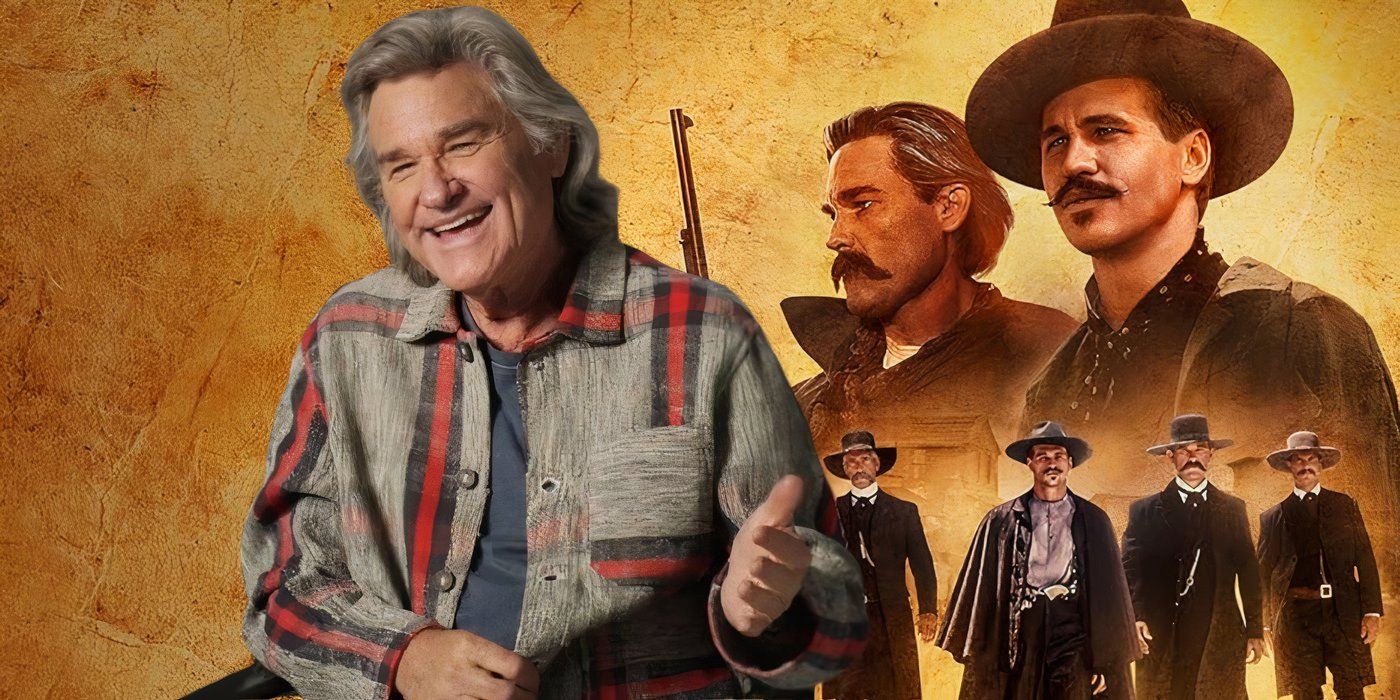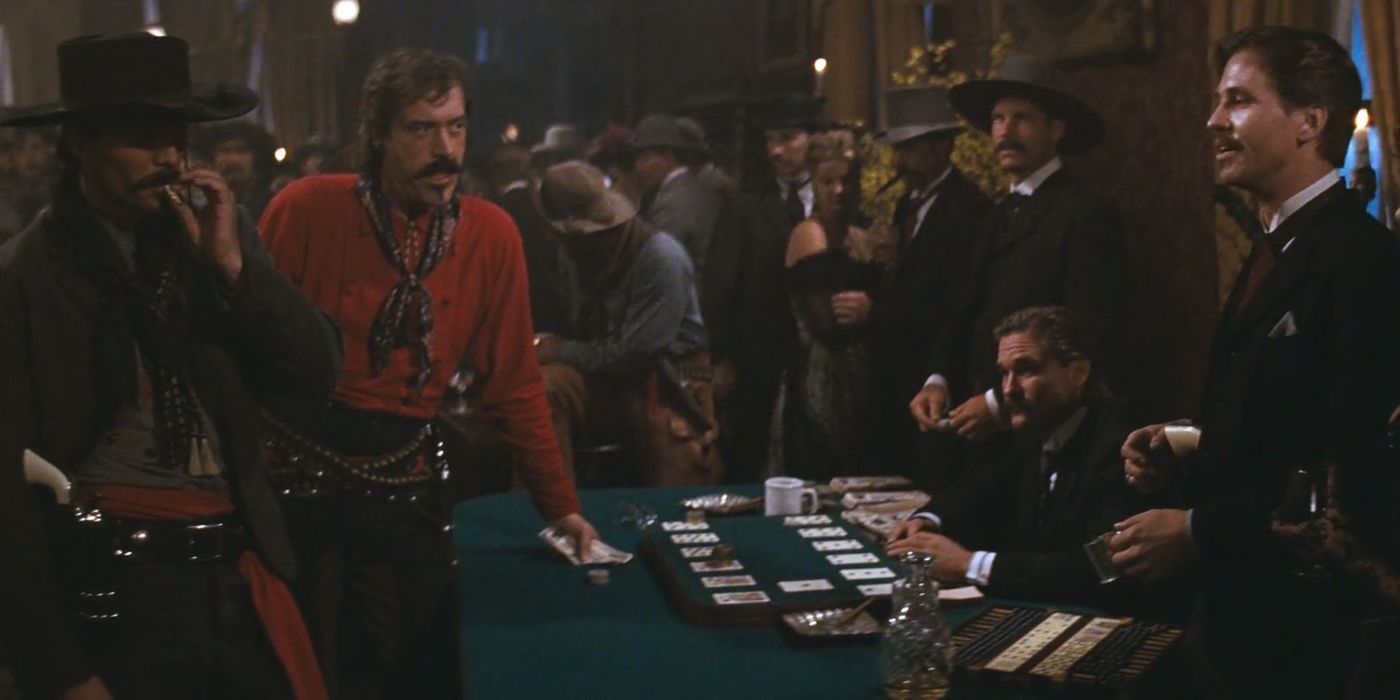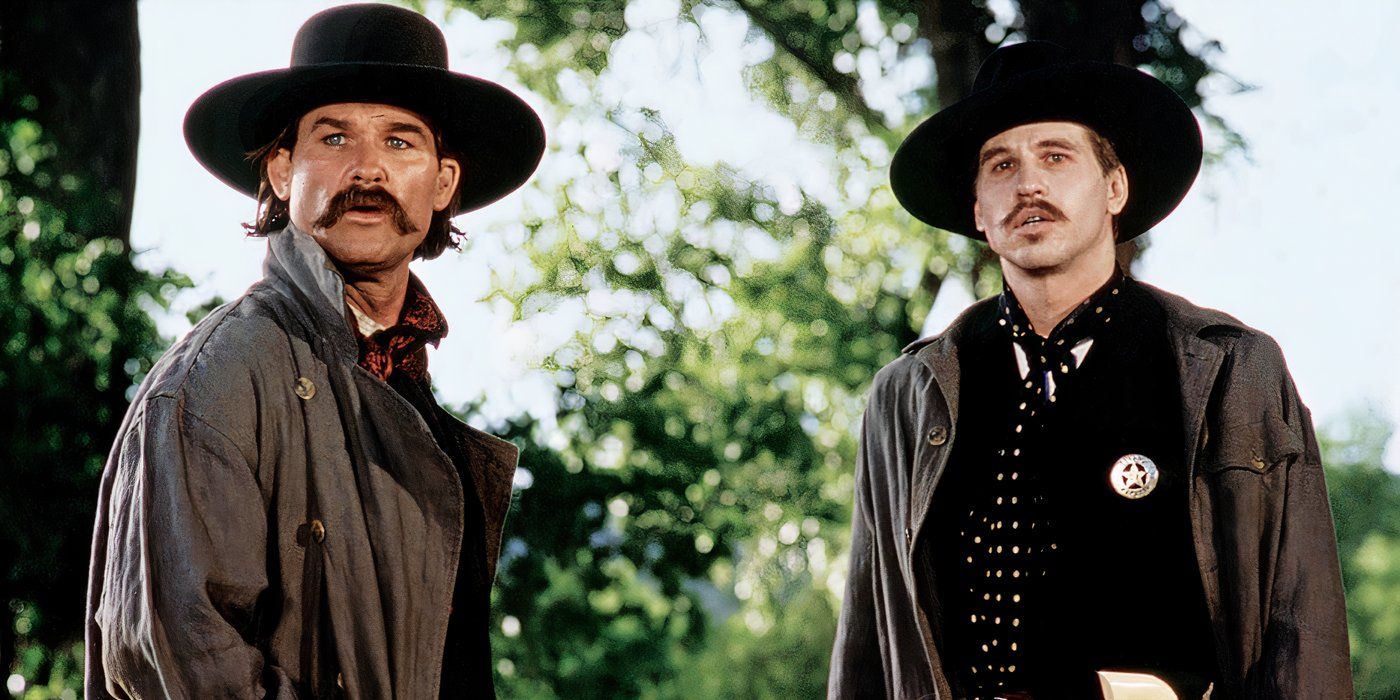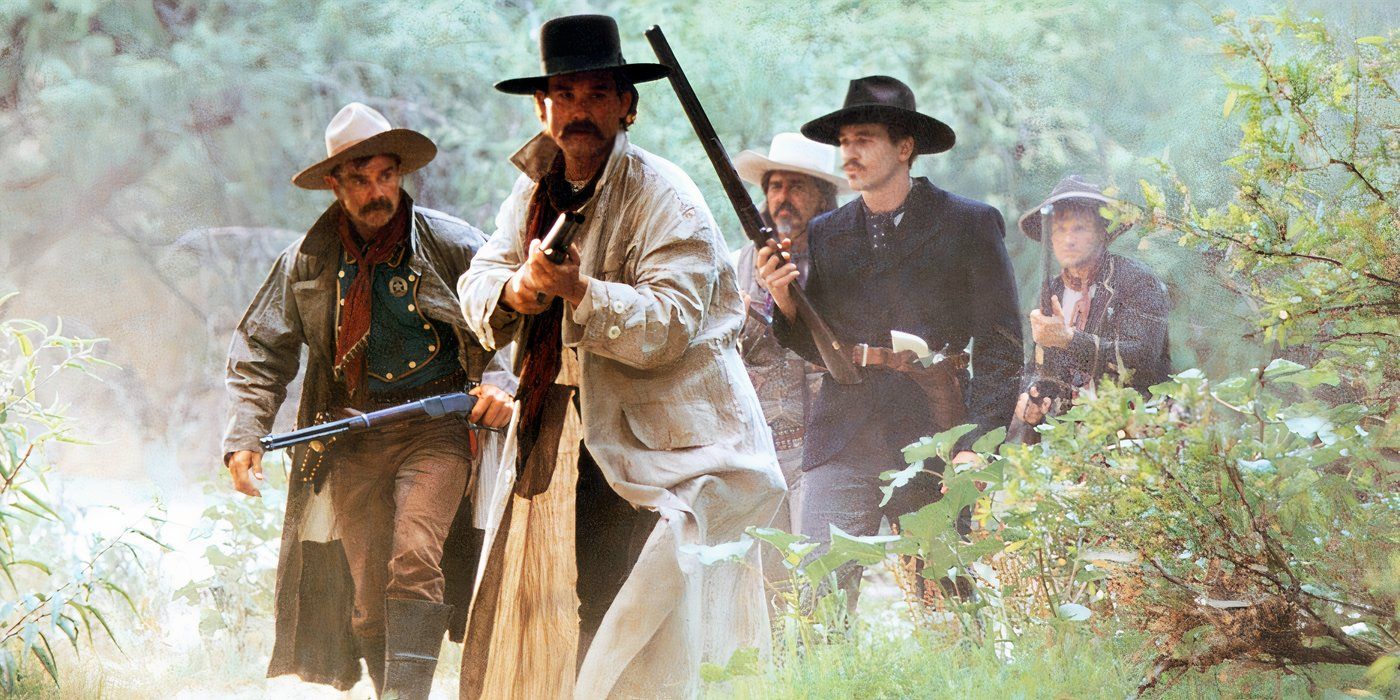
The fact that the classic 1993 Western remains compelling even after three decades is a testament in itself. However, it might not be common knowledge that despite its polished appearance, it faced numerous challenges during its early production phases. Interestingly, the film underwent a significant disagreement with its original director, leading to his departure from the project entirely. Remarkably, the rest of the team refused to back down and one daring cast member volunteered to take over the directing role.
Kurt Russell consistently garners well-deserved accolades for his on-screen performances, but it’s his unacknowledged work behind the camera that truly deserves recognition. In essence, he shouldered most of the responsibilities that come with directing, even though George Cosmatos was credited and basked in the limelight. It’s high time that Russell receives the due credit for his brave undertaking in a production that proved to be surprisingly challenging.
Who Was Originally Set To Direct Tombstone?
With the Film’s Writer Also Originally Being Set to Direct, It Could’ve Had Quite a Different Vision

| Every Kurt Russell Western | Director | Rotten Tomatoes Score |
|---|---|---|
|
‘Guns of Diablo’ (1964)
|
Michael O’Herlihy
|
30% |
|
The One and Only, Genuine, Original Family Band (1968)
|
Boris Sagal | 61% |
| Tombstone (1993) |
George P. Cosmatos
|
75% |
| Bone Tomahawk (2015) |
S. Craig Zahler
|
91% |
| The Hateful Eight (2015) | Quentin Tarantino | 74% |
It’s widely acknowledged that Russell praised the screenplay as one of the best he had ever encountered, attributing its production to its writer, Kevin Jarre. Initially slated to direct the film, marking his directorial debut, Jarre faced challenges. Although a gifted writer, the responsibilities of directing proved overwhelming for him. By the first month of production, he was behind schedule, leading to his eventual dismissal by the studio. Interestingly, some footage that Jarre shot during his tenure is still included in the film’s final cut, particularly those scenes featuring Charlton Heston as Henry Hooker, which remain unchanged.
It’s reasonable that Jarre was dismissed from the film, considering that directing demands an ability to articulate a visual narrative which not every writer possesses. If they can’t handle the technical aspects, it might be wise for them to stay in their role as writers. Yet, getting rid of such a crucial figure during any production, particularly at the beginning of filming, is rarely advantageous and may lead to various unforeseen problems that could potentially derail the project significantly. In the case of a movie like “Tombstone“, given its substantial budget, things could have easily unraveled altogether.
How Did Kurt Russell Suddenly Become Tombstone’s Secret Director?
The Actor Took On Most of the Responsibility, But None of the Credit For Doing So
As the new director, George Cosmatos stepped in following Jarre’s dismissal, but this transition wasn’t without its challenges. There were tense moments among some members of the film crew. Despite most actors choosing to stay on set, Michael Biehn was contemplating departure due to the director’s perceived lack of script comprehension and disregard, coupled with a challenging working environment. Fortunately, someone had to step in as a mediator.
Contrary to popular belief, Cosmatos wasn’t heavily involved in the creative aspects of the film. He was primarily there to capture the shots that were already planned and execute any decisions made by Russell during pre-production, leaving the rest of the production under his watchful eye.
As a cinephile, I must confess that while Cosmatos’ impact was primarily in maintaining historical authenticity in “Tombstone”, it was actually Kevin Costner who took the lead in working with all the actors, collaborating with the cinematographer, and even reshaping the script. This included deleting certain storylines and emphasizing the bond between Wyatt Earp and Doc Holliday. Typically, having a director like Costner involved in such dual roles would be a significant draw for a film like “Tombstone”, but it appears that this was something he originally preferred to keep under wraps.
In a 2006 interview, Russell discussed his active role in the movie-making process during filming, likening director Cosmatos to a “spectral director”. He also emphasized that he didn’t aspire to be the lead figure in directing and preferred not to claim responsibility for essentially carrying the entire production of the film alone.
Kurt Russell’s Bold Move Saved Tombstone From Disaster
It May Not Have Been the True Original Vision That Kevin Jarre Had In Mind, But the Fans Wouldn’t Have it Any Other Way
Despite significant differences between the final cut of the movie ‘Tombstone’ and the initial vision that Karsten may have held, it’s challenging not to acknowledge that the production turbulence ultimately proved beneficial. The film’s enduring success is a testament to Russell’s deep understanding of filmmaking, raising questions as to why he hasn’t directed another movie since. Those who question the actor’s accounts of the intense labor required to maintain the film’s production are not alone in their skepticism. These assertions were previously corroborated by Russell’s co-star, Val Kilmer (on various occasions), stating that Russell was instrumental in shaping the movie’s final outcome and commending his relentless dedication in taking on all the tasks that Karsten couldn’t manage effectively.
Typically, a production plagued with troubles, such as the one faced by Tombstone, often leads to a chaotic and disconnected final product that evidently mirrors the off-screen turmoil. Yet, remarkably, Russell orchestrated what could be considered one of the most impressive Hail Mary passes in Hollywood, resulting in an exceptional work that stands among the best from the western genre. Although he may have been reluctant to claim all the credit for the sheer dedication he demonstrated in bringing the film to fruition, Tombstone is arguably the movie in his career where his directorial prowess deserves as much recognition as his acting skills.
Read More
- Gold Rate Forecast
- PI PREDICTION. PI cryptocurrency
- Rick and Morty Season 8: Release Date SHOCK!
- Discover Ryan Gosling & Emma Stone’s Hidden Movie Trilogy You Never Knew About!
- Mission: Impossible 8 Reveals Shocking Truth But Leaves Fans with Unanswered Questions!
- SteelSeries reveals new Arctis Nova 3 Wireless headset series for Xbox, PlayStation, Nintendo Switch, and PC
- Discover the New Psion Subclasses in D&D’s Latest Unearthed Arcana!
- Linkin Park Albums in Order: Full Tracklists and Secrets Revealed
- Masters Toronto 2025: Everything You Need to Know
- We Loved Both of These Classic Sci-Fi Films (But They’re Pretty Much the Same Movie)
2025-04-18 18:20

